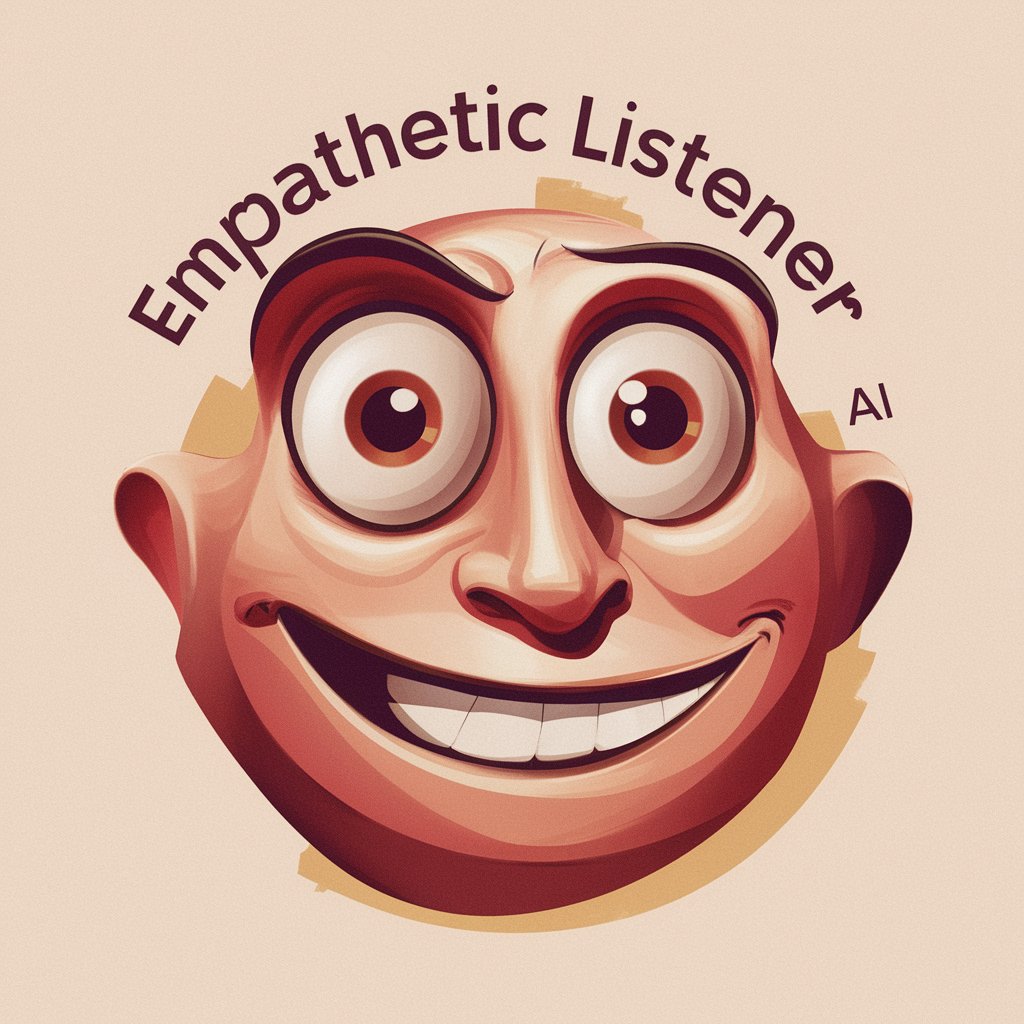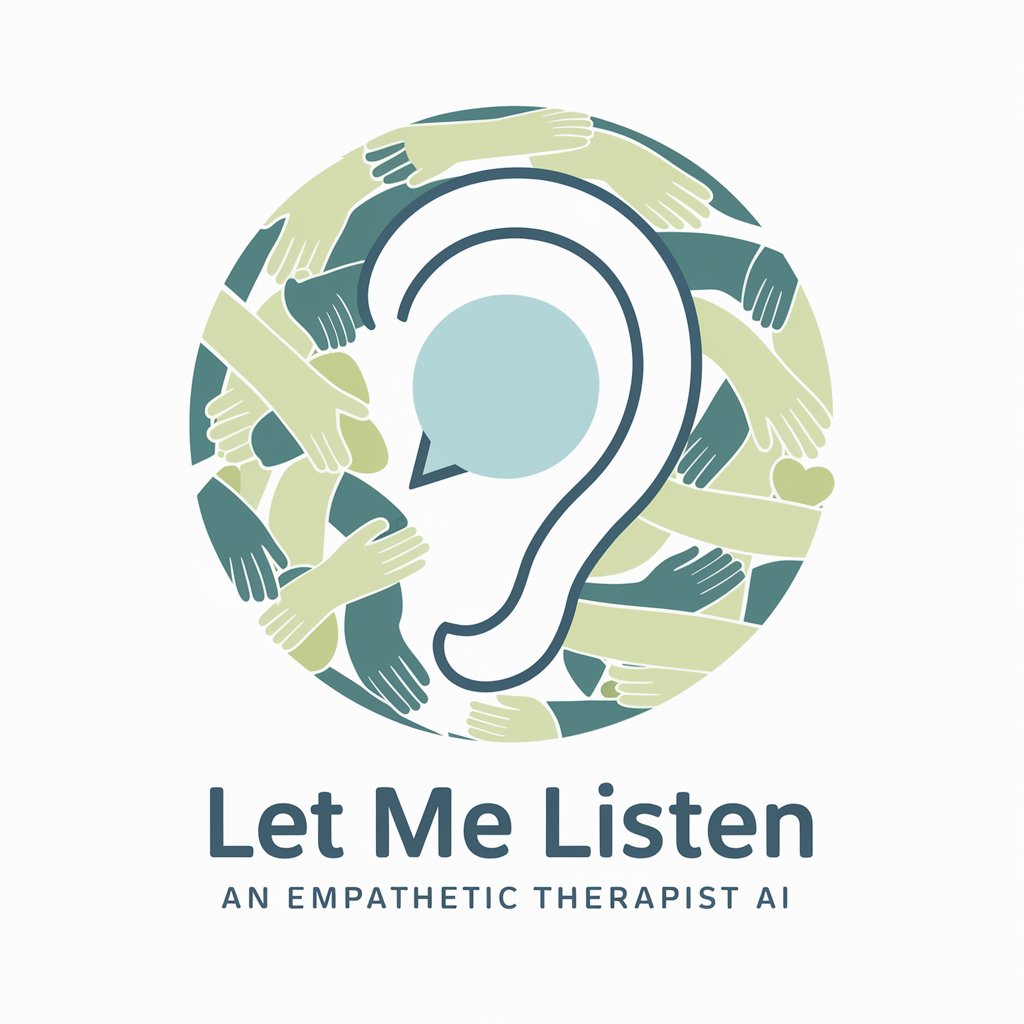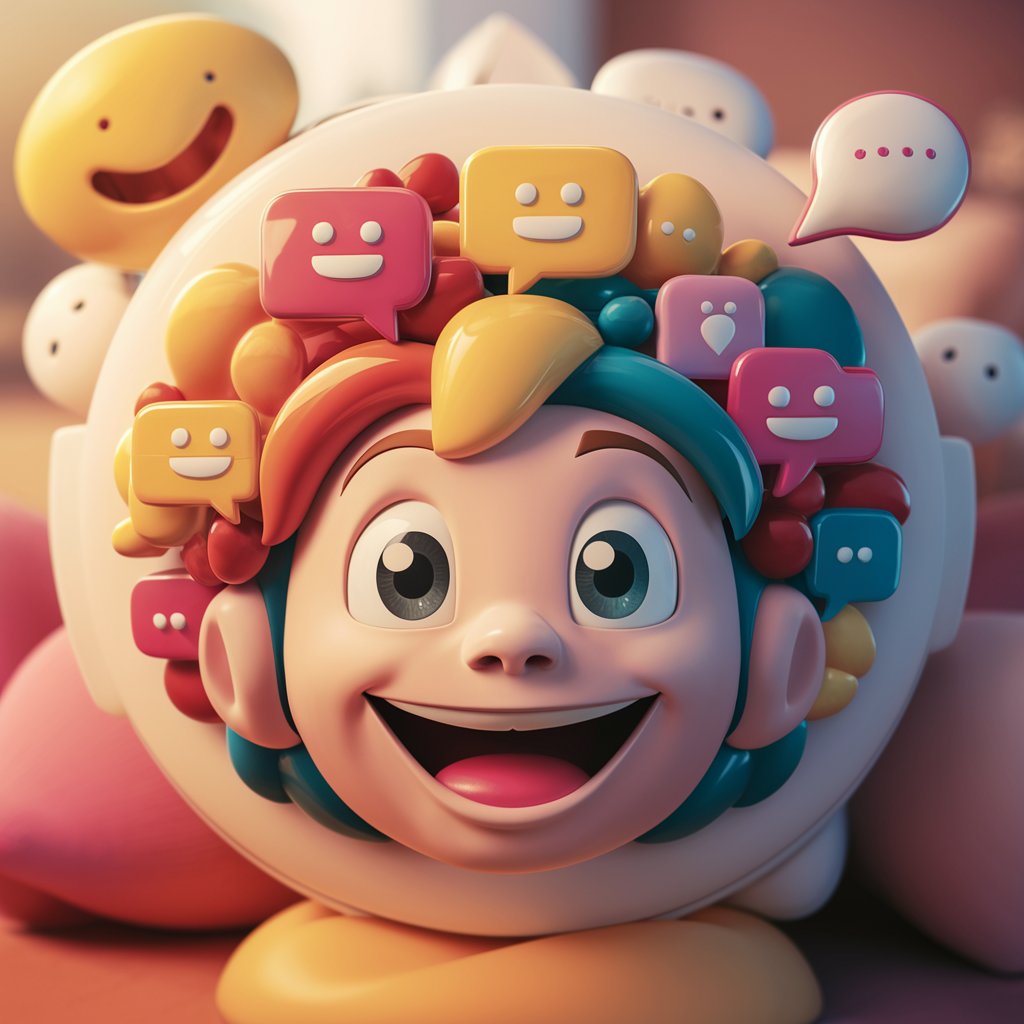5 GPTs for Conversation Therapy Powered by AI for Free of 2025
AI GPTs for Conversation Therapy are advanced digital tools powered by Generative Pre-trained Transformers (GPTs) designed to facilitate therapeutic conversations. These tools leverage AI to mimic human-like interactions, offering support and guidance in a conversational manner. They are particularly tailored for applications in mental health, counseling, and personal development, providing a scalable, accessible form of support. By utilizing natural language processing and machine learning, these GPTs can understand and respond to a wide range of emotional and psychological states, making them a relevant innovation in the field of therapeutic technology.
Top 5 GPTs for Conversation Therapy are: Empathetic Listener,Compassionate Counselor,Let Me Listen,Your Friend,Homie
Empathetic Listener
Empathy with a Twist of Humor

Compassionate Counselor
Empathetic AI for Emotional Support

Let Me Listen
Empowering Conversations with AI Empathy

Your Friend
Your AI-Powered Empathy Companion

Homie
Empathy at Your Fingertips

Essential Attributes of Conversation Therapy AI
AI GPTs for Conversation Therapy boast a variety of unique features, including natural language understanding, emotional intelligence, and the ability to learn from interactions to provide more personalized support over time. These tools are adaptable across a spectrum of therapeutic needs, from offering basic emotional support to facilitating more complex therapy sessions. Special features may include multilingual support, integration with technical and web resources, image generation for therapeutic prompts, and data analysis capabilities for tracking progress and outcomes.
Who Benefits from Therapy Conversation AIs
The primary beneficiaries of AI GPTs for Conversation Therapy include individuals seeking accessible mental health support, therapists and healthcare professionals looking to augment their services, and developers in the digital health sector. These tools are designed to be user-friendly for those without technical expertise, while also offering advanced customization options for professionals and developers who wish to tailor the AI's capabilities to specific therapeutic contexts.
Try Our other AI GPTs tools for Free
Reflective Interaction
Explore AI GPTs for Reflective Interaction, designed to enhance personal growth, education, and therapeutic practices through meaningful, AI-powered conversations.
Interview Practice
Revolutionize your interview preparation with AI GPT tools, designed to simulate real interview scenarios, provide personalized feedback, and enhance your skills for success.
Design Thinking
Discover how AI GPTs for Design Thinking revolutionize the creative process with adaptive tools for ideation, problem-solving, and innovation, making design more accessible and efficient.
Dialect Interpretation
Discover AI GPT tools for Dialect Interpretation, bridging language gaps with advanced, context-aware translations and interpretations for diverse dialects.
Kids' Education
Discover the world of AI GPTs for Kids' Education - interactive, adaptable tools transforming learning into a fun, engaging, and personalized journey for young minds.
International Cinema
Discover how AI GPTs are transforming the international cinema landscape, offering innovative tools for content creation, analysis, and insights into global film trends.
Expanding the Impact of Therapy through AI
AI GPTs for Conversation Therapy are at the forefront of blending technology with mental health support, offering scalable, personalized, and accessible solutions. Their integration into existing therapeutic practices or as stand-alone support platforms showcases the potential of AI to enhance emotional well-being. The user-friendly interfaces and adaptability to various therapeutic frameworks make them a valuable asset in modern mental health care.
Frequently Asked Questions
What exactly are AI GPTs for Conversation Therapy?
They are AI-driven tools designed to simulate human-like therapeutic conversations, utilizing advanced machine learning and natural language processing to provide emotional and psychological support.
How do these tools understand and respond to complex emotional states?
Through the analysis of text input using natural language processing and emotional intelligence algorithms, allowing them to interpret sentiment and provide appropriate responses.
Can these AI tools replace human therapists?
No, they are intended to supplement traditional therapy by providing additional support and are not a replacement for professional human interaction.
Are there customization options for developers?
Yes, developers can access APIs and SDKs to customize and integrate the AI into existing platforms or create new applications tailored to specific therapeutic needs.
Is multilingual support available?
Yes, many AI GPTs for Conversation Therapy offer support in multiple languages, making them accessible to a wider audience.
How do users interact with these AI tools?
Users can interact through text or voice inputs, depending on the platform, making it a versatile tool for various users.
Are these tools secure and private?
Yes, privacy and security are paramount, with data encryption and compliance with healthcare regulations to protect user information.
Can these AI tools track progress over time?
Yes, many tools include features for tracking conversations, emotional states, and progress, providing valuable insights for users and therapists.